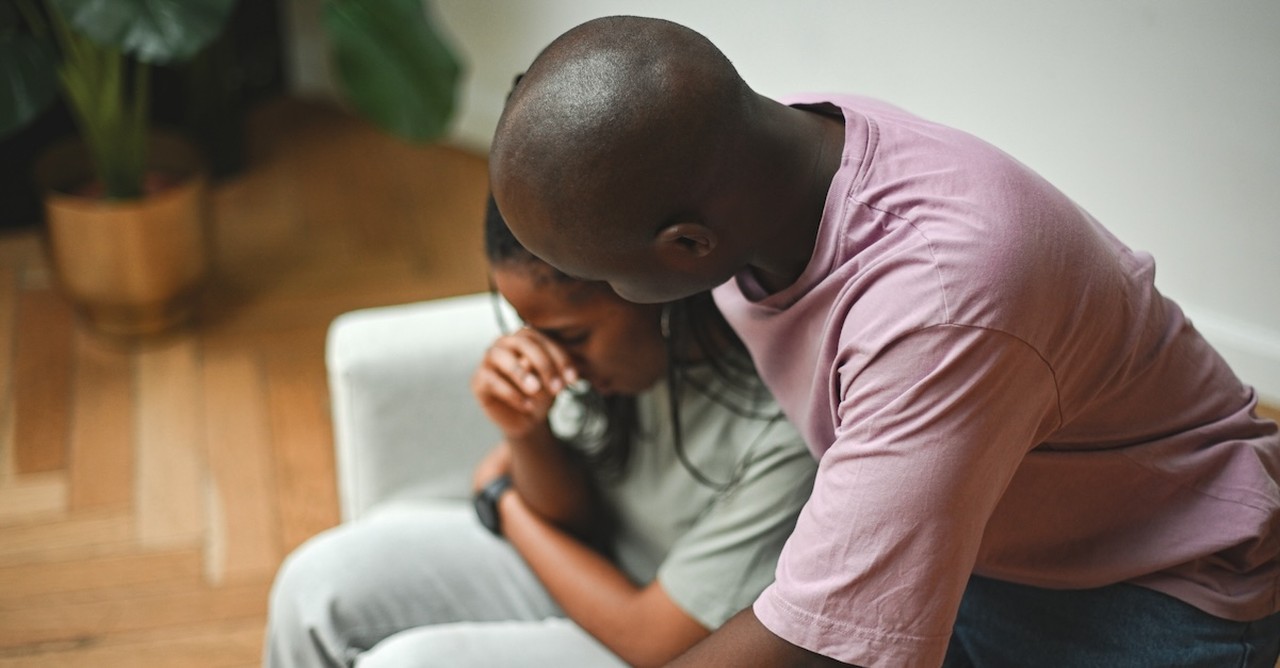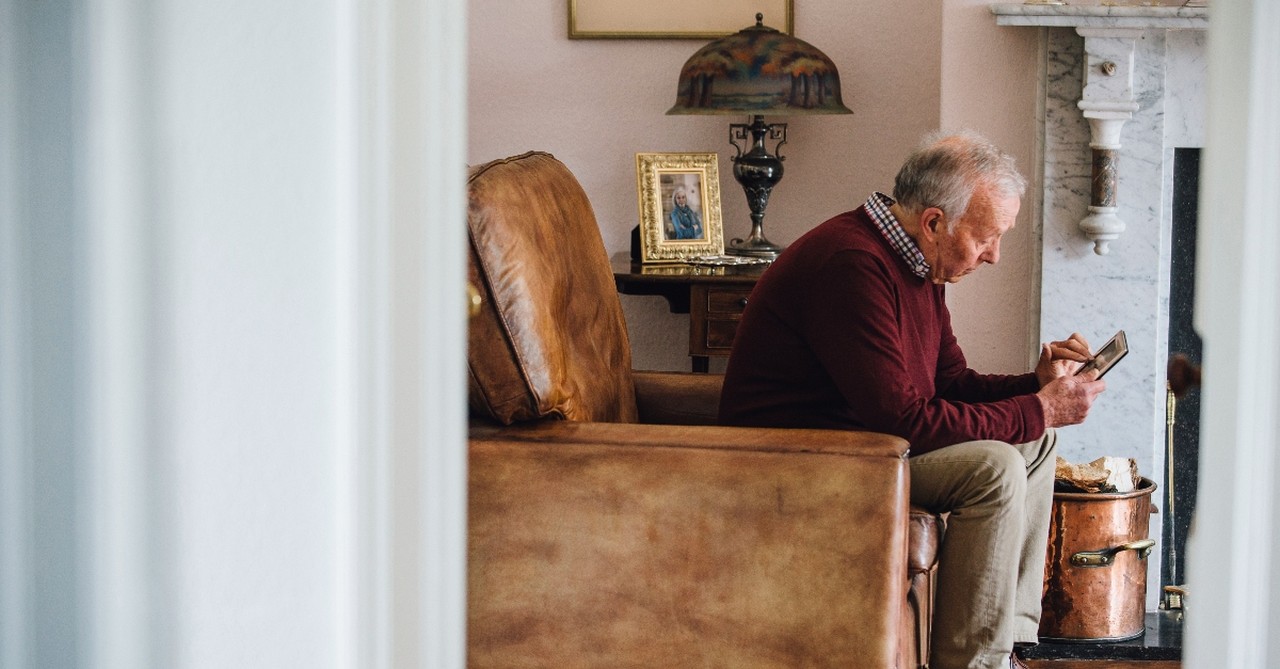5 Ways Grief Can Impact a Marriage and How to Heal Together

It is inevitable that grief will touch your marriage at some point. Assuming your marriage withstands the winds of life, grief will come in more than one form. For some of us, it will be the loss of extended relatives and perhaps friends or even close friends. Eventually, it will be closer branches, such as our siblings and our parents who pass away and leave us to reconcile with the empty spaces they leave behind. Perhaps the most traumatic form of grief for a married couple is the loss of their child. And while yes, eventually it will be the loss of one another, we must first look at the way grief affects us as a couple.
When one studies the rate of marriages who reach an end after the loss of a child, the results can be staggering while simultaneously surprising. Some sources state it is as low as 14% of marriages end in divorce after a child's death, and others say it is as high as 80%. Seeing this discrepancy of statistics is another article for another day. What it does teach us is that grief affects relationships in a broad and starkly different way.
Grief has the tendency to pull together, while it can also rip apart. Much of it has to do with each spouse's response to not only their own grief but also the grief of their partner.
Let's take a closer look at how grief can impact a marriage and how marriages can heal together:
1. Recognize That Grief Looks Different for Each Spouse

1. Recognize That Grief Looks Different for Each Spouse
SLIDE 1 OF 5
This seems elementary, but in reality, it can be one of the most difficult steps in the grieving process. The differences in how a person grieves can be remarkable.
While one spouse may pull themselves up by the "bootstraps," so to speak, the other may be inconsolable and unable to function. One may find the end of life solemn and face it as a new beginning, while the other may see no possibility of a new beginning after the loss. Some couples state that one takes a "what's done is done" perspective, while the other sees it as a never-ending cycle of reliving the truth that a critical person in their life is no longer there.
The fact is—and this is where many couples immediately go awry—that grief is different for each person and there isn't one correct way to grieve. It is so important that spouses recognize the other person's emotional, mental, spiritual, and even physical response to grief as unique to them and as valid. Discounting and disregarding a personal grief experience becomes not only hurtful and damaging, but it can also begin to feel like a betrayal of sorts, toward the person who passed on.
So, in short and simple terms, recognize the way your partner grieves (or doesn't grieve!) is not necessarily wrong. It simply is. Grief is no respecter of person, and as a spouse, we must give our partner room to process in a way that best suits them, their personality, and their relationship to God and faith.
2. Avoid Blaming Each Other for How You're Grieving

2. Avoid Blaming Each Other for How You're Grieving
SLIDE 2 OF 5
As we recognize the differences in how we grieve, the next step is being ever-so-careful not to blame, attack, or become defensive.
There was a man and a wife who, after the loss of the wife's father, found a terrible chasm grow between them. The wife was overcome with the loss of her father. She found it difficult to look forward to life ahead. She had no idea how to function with the aching gap that he had left behind. Her husband, while fond of his father-in-law, saw death as a part of life. But he also understood that his father-in-law was a critical piece of his wife's life and, therefore, attempted to give her space to grieve. His wife, on the hand, became bitter toward her husband. She was irritated and eventually furious at the fact that not only did her husband not seem upset, but he also continued to move ahead with life. It was as though he wasn't bothered by the loss. This grew a deep gap between them. The husband was confused as to why his wife couldn't accept that he wasn't emotionally traumatized by the loss but was still giving her space to grieve. The wife was outraged that her husband was not emotional and outwardly grieving, and she interpreted his continuation of life as cavalier and unfeeling.
It is critical not to create emotional barriers and gaps between you and your partner. The blame game of who is grieving too much and who is grieving too little can be so destructive. Yes, there can be unhealthy responses to grief, and counseling may be necessary, but it is critical that each spouse also feels the support of their significant other and not judgment for the grief they do or do not emote.
Photo credit: ©GettyImages/elenaleonova
3. Communicate Needs with Honesty and Gentleness

3. Communicate Needs with Honesty and Gentleness
SLIDE 3 OF 5
There will be differences in the grief journey. Because of this, it is so important that spouses communicate their needs with honesty and gentleness. Marriage should be a safe place for each person to bring their thoughts and feelings. Because of this, both the husband and wife need to be cautious not to come at each other already defensive. When that happens, regardless of what or how their spouse raises a thought or concern, it will very often be personalized or interpreted negatively. Instead, approach the communication of your grief journeys on the offensive. Go into your conversation with the intent to listen, come alongside, and attempt to understand the other's point of view. And, if you cannot understand it, offer them your "permission," so to speak, to grieve or to move on without censure.
4. Find Shared Ways to Remember and Honor the Loss

4. Find Shared Ways to Remember and Honor the Loss
SLIDE 4 OF 5
Unless there was some severe dysfunction in your relationship with the person who has passed away, one thing that typically can be found as a unifier, is the affection we had for the person who has died.
Because of this, take the opportunity to come together and find ways you can both remember them while at the same time recognizing the loss of them. It may be as simple as not ignoring the fact that they passed away or not avoiding talking about them or using their name in conversation. This shows that you recognize the importance of who they were and reassure each other that you have not forgotten them.
There are many ways to remember and honor someone who has passed away. The key is to do it and be sensitive to the other person's grief journey in the process. A plethora of photographs might be overwhelming to one spouse. So find a way to bring a visual remembrance of the loved one without overwhelming the situation with visual saturation. The same can be said about sharing of memories or stories.
The phrase "all in moderation" can apply to this concept. Grief can cause us to sway to extreme ends, so it is important we meet in the middle.
5. Cling to God Together, Even When Emotions Feel Distant

5. Cling to God Together, Even When Emotions Feel Distant
SLIDE 5 OF 5
Most importantly, it is critical to cling to our faith in togetherness. Emotions are deceptive, unpredictable, and often irrational. If we rely on our emotions—or lack of—to get us through the grieving process, we have short-changed ourselves and thus, short-changed our partner.
This is a time when you can come together around central truths from Scripture as it relates to death. Ideally, your situation of grief is regarding someone with whom you have confidence is with the Lord. If this is the case, then you can cling together knowing the eternal promise of being reunited. Grief becomes less of a desolate desperation, and more of an ache while we wait.
If your loss is accompanied by the unknown of the deceased's spiritual state, grief can take on a very different impact. The sweetness of promise can be shadowed by fear, guilt, and even anger. In this time, clinging to each other and the Lord with faith in God's justice and grace is critical. Lay your burdens at His feet and allow Him to carry them.
Grief is a complex beast. There are no perfect how-tos or step-by-steps that will be adequate to get you through and keep your marriage strong. This is why it is of utmost importance that you draw together and hold on tight to your faith. This way, you allow your partner the room they need to process grief, and you allow your partner to move on with life even if you're not ready to.
Sharing grief can be a beautiful and precious experience if you come at it with the idea that you will walk through it together, even if your map to get through it takes you on different paths. Grief can be a glue to a marriage. It can bind you in the uniqueness of shared pain, hurt, and trauma in a way you can't share with anyone else.
So, in the end, as difficult as it is, embrace grief in all its shapes and sizes. Most of all, do not abandon your partner in the depths of their deepest need.
Jaime Jo Wright is an ECPA and Publisher’s Weekly bestselling author. Her novel “The House on Foster Hill” won the prestigious Christy Award and she continues to publish Gothic thrillers for the inspirational market. Jaime Jo resides in the woods of Wisconsin, lives in dreamland, exists in reality, and invites you to join her adventures at jaimewrightbooks.com and at her podcast madlitmusings.com where she discusses the deeper issues of story and faith with fellow authors.
Originally published July 29, 2025.






